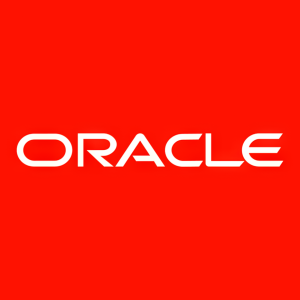Oracle Enhances Electronic Data Capture Solution to Streamline Clinical Trials and Help Bring New Therapies to Market Faster
Rhea-AI Summary
Oracle (NYSE:ORCL) has announced significant enhancements to its Electronic Data Capture (EDC) solution, Oracle Clinical One Data Collection. The updates focus on three key areas: AI-enabled EHR interoperability, enhanced data collection capabilities, and safety integration with Oracle Safety One Argus and other solutions.
The improvements include secure AI-enabled data transfer between EHR systems and Clinical One Data Collection, expanded document management capabilities for clinical sites, and integrated safety features using the ICH E2B(R3) standard for adverse event reporting. These advancements aim to streamline clinical trials, reduce manual work, improve data accuracy, and accelerate the process of bringing new therapies to market.
Positive
- Integration of AI-enabled Oracle Clinical Connector for automated EHR data transfers
- Enhanced document management capabilities with mobile support for all file formats
- Streamlined safety reporting through ICH E2B(R3) standard integration
- Interoperability with multiple safety solutions offering customer flexibility
Negative
- None.
News Market Reaction
On the day this news was published, ORCL gained 0.68%, reflecting a mild positive market reaction.
Data tracked by StockTitan Argus on the day of publication.
Updates include AI-enabled EHR interoperability, comprehensive data collection, and safety integration capabilities
These advancements, developed in collaboration with pharma industry leaders and Oracle's CRO Growth Network collaborators, reflect Oracle's commitment to delivering AI-driven, interoperable solutions that enhance automation, streamline data connectivity, and offer customers greater choice and flexibility.
"In today's complex clinical trial landscape, interoperability and streamlined data flow are paramount," said Deepu Joseph, Global Head of DM, Country Head India, Excelya. "Oracle's focus on agnostic EHR-EDC integration and complete safety reporting within Clinical One Data Collection increases operational efficiency for sites and sponsors. This kind of robust, connected ecosystem is exactly what the industry needs, to reduce burden and accelerate studies."
Comprehensive EHR integration
Furthering Oracle's mission to deliver a connected and intelligent clinical research ecosystem, the new EDC enhancements enable researchers to use the AI-enabled Oracle Clinical Connector to securely transfer data between Oracle Health and other EHRs and Oracle Clinical One Data Collection. This integration removes manual busywork by enabling direct, EHR data transfers that can help improve accuracy and speed research.
Site and subject-level data and document management
While structured data captured through eCRFs is essential, modern clinical research also requires the flexibility to collect and manage other types of data. The new release increases document management capabilities for clinical sites with site-level data collection to support all file formats at the subject level, allowing documents to be uploaded alongside structured data within the EDC system. For example, site staff can use a mobile device to upload contextual data directly into the platform, such as a subject's scanned lab result. This helps teams keep documentation centralized, supports a more complete view of the subject, and accelerates research workflows.
Integration with safety solutions
Reporting serious adverse events often requires duplicative effort across disconnected systems, which can slow research, is prone to inaccurate entries, and risks quality. Clinical One Data Collection now offers integrated safety capabilities across the workflow for faster and more accurate adverse event management. The safety integration uses the ICH E2B(R3) standard, enabling sites to more quickly and seamlessly address their regulatory compliance obligations to immediately report the occurrence of serious adverse events (SAE) to the trial sponsor. The integration is fully interoperable with Oracle Safety One Argus and other safety solutions, giving customers choice and flexibility, while helping to maintain compliance and efficiency across the clinical development lifecycle.
"Our EDC enhancements underscore Oracle's commitment to delivering AI-driven capabilities and aligning clinical research and clinical care by creating a more open healthcare ecosystem that fuels medical breakthroughs for the patients who desperately need them," said Seema Verma, executive vice president and general manager, Oracle Health and Life Sciences. "These innovations in data collection and safety can help further streamline drug development, to help improve data integrity and regulatory adherence, while empowering researchers to conduct trials with efficiency and precision."
The new features and enhancements within Oracle Clinical One Data Collection are available to customers globally as part of their standard clinical update process.
To learn more about how Oracle is transforming clinical trials with innovative solutions designed to unify data from clinical trials, streamline and automate safety case management, generate real-world evidence from unique data sets, and guide brand strategy with commercial insights visit https://www.oracle.com/life-sciences/ or join us at the Oracle Health and Life Sciences Summit in
About Oracle Life Sciences
Oracle Life Sciences is a leader in cloud technology, pharmaceutical research, and consulting, trusted globally by professionals in both large and emerging companies engaged in clinical research and pharmacovigilance, throughout the therapeutic development lifecycle, including pre- and post-drug launch activities. With more than 20 years of experience, Oracle Life Sciences is committed to supporting clinical development and leveraging real-world evidence to deliver innovation and accelerate advancements, empowering the Life Sciences industry to improve patient outcomes. Learn more at www.oracle.com/lifesciences.
About Oracle
Oracle offers integrated suites of applications plus secure, autonomous infrastructure in the Oracle Cloud. For more information about Oracle (NYSE: ORCL), please visit us at www.oracle.com.
Trademarks
Oracle, Java, MySQL and NetSuite are registered trademarks of Oracle Corporation. NetSuite was the first cloud company—ushering in the new era of cloud computing.
![]() View original content to download multimedia:https://www.prnewswire.com/news-releases/oracle-enhances-electronic-data-capture-solution-to-streamline-clinical-trials-and-help-bring-new-therapies-to-market-faster-302539257.html
View original content to download multimedia:https://www.prnewswire.com/news-releases/oracle-enhances-electronic-data-capture-solution-to-streamline-clinical-trials-and-help-bring-new-therapies-to-market-faster-302539257.html
SOURCE Oracle








